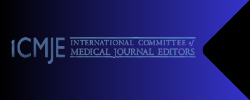Yeni İndeksler: SOBIAD & ASOS Index
Dergimiz Acta Medica Ruha, SOBIAD Atıf Dizini ve ASOS İndeks tarafından taranmaya başlanmıştır.
Bu gelişmenin, dergimizin bilimsel görünürlüğüne ve ulusal/uluslararası düzeyde erişilebilirliğine önemli katkı sağlayacağına inanıyoruz.
Bilimsel çalışmalarınızla desteğinizi bekler, katkıda bulunan tüm yazarlarımıza, hakemlerimize ve editör kurulumuza teşekkür ederiz.
Acta Medica Ruha Editör Kurulu








